News Archive: 2015
Dec 23, 2015
GCER Fellow’s Research profiled in Stanford Law Review
 Recent published work by GCER Fellow Rajeev Bhattacharya market is now being profiled on the Stanford Law School website . Professor Battacharya’s research on market efficiency was originally published in the Santa Clara Law Review.
Recent published work by GCER Fellow Rajeev Bhattacharya market is now being profiled on the Stanford Law School website . Professor Battacharya’s research on market efficiency was originally published in the Santa Clara Law Review.
Dec 21, 2015
GCER Fellow Martin Ravallion Publishes New Book on Poverty
 Martin Ravallion, Edmond Villani Chair of Economics, Georgetown University, has written a new book “The Economics of Poverty: History, Measurement and Policy.” Professor Ravallion’s main research interests over the last 30 years have concerned poverty and the policies for fighting it. He has advised numerous governments and international agencies on this topic and has written extensively on this and other subjects in economics. His research includes five books and 200 papers in scholarly journals and edited volumes. His new book will be published by Oxford University Press in January 2016.
Martin Ravallion, Edmond Villani Chair of Economics, Georgetown University, has written a new book “The Economics of Poverty: History, Measurement and Policy.” Professor Ravallion’s main research interests over the last 30 years have concerned poverty and the policies for fighting it. He has advised numerous governments and international agencies on this topic and has written extensively on this and other subjects in economics. His research includes five books and 200 papers in scholarly journals and edited volumes. His new book will be published by Oxford University Press in January 2016.
Nov 10, 2015
GCER Fellow and Villani Chair Francis Vella elected Fellow of the Econometric Society.
 We are proud to announce that our own Francis Vella, GCER Co-Director and Edmond Villani Professor of Economics at Georgetown, was recently elected Fellow of the Econometric Society. The election is one the most prestigious awards in all of economics. It places Professor Vella among the very best in the profession. Congratulations, Frank!
We are proud to announce that our own Francis Vella, GCER Co-Director and Edmond Villani Professor of Economics at Georgetown, was recently elected Fellow of the Econometric Society. The election is one the most prestigious awards in all of economics. It places Professor Vella among the very best in the profession. Congratulations, Frank!
Oct 31, 2015
Distinguished Visitor Series resumes for 2015-16
The fourth year of the GCER Distinguished Visitor Series features a number of prominent economists who will spend time in the Department during the 2015-16 academic year. This years Distinguished Visitors include:

Marco Del Negro, November 2-5, 2015
Marco Del Negro is Assistant Vice President in the Macroeconomics and Monetary Studies Function of the Research and Statistics Group at the Federal Reserve Bank of New York. He has published extensively in international macroeconomics and finance, using general equilibrium models in forecasting and policy analysis. Professor Del Negro will visit the Georgetown economics department during the week of November 2-6 where he will present his latest research in a joint Macro and Econometrics workshop, and will meet with faculty and students.
 Joseph Altonji, November 30-December 4, 2015
Joseph Altonji, November 30-December 4, 2015
Joseph Altonji is the Thomas Dewitt Cuyler Professor of Economics at Yale University. Professor Altonji is a Fellow of the Econometric Society and Research Fellow at the IZA and NBER. He is well known for his studies of discrimination and occupational choice, and for the development of new estimation techniques for dealing with unobserved selection bias. Professor Altonji will visit the Department during the week of November 30-December 4 where he will present his latest research in the Econometrics workshop, and will meet with faculty and students.
 Debraj Ray, dates to be determined in 2016
Debraj Ray, dates to be determined in 2016
Debraj Ray holds the position of Silver Professor at New York University. Professor Ray is well known for theoretical innovations in development economics. He has prominent studies of ethnicity and social conflict, informal credit markets, and group formation in developing economies. Times and dates of his visit will be determined shortly.
Oct 13, 2015
GCER Fellow Huggett cited in 2015 Nobel Summary.
 Congratulations to the GCER Fellow Mark Huggett who is cited in this year’s Nobel summary of the work of Nobel recipient Angus Deaton. The summary, “CONSUMPTION, POVERTY AND WELFARE” cites Professor Huggett’s seminal work on incomplete insurance economies.
Congratulations to the GCER Fellow Mark Huggett who is cited in this year’s Nobel summary of the work of Nobel recipient Angus Deaton. The summary, “CONSUMPTION, POVERTY AND WELFARE” cites Professor Huggett’s seminal work on incomplete insurance economies.
Oct 6, 2015
GCER Fellow Mayda receives NSF Grant for research on effects of H1-B workers on US firms.
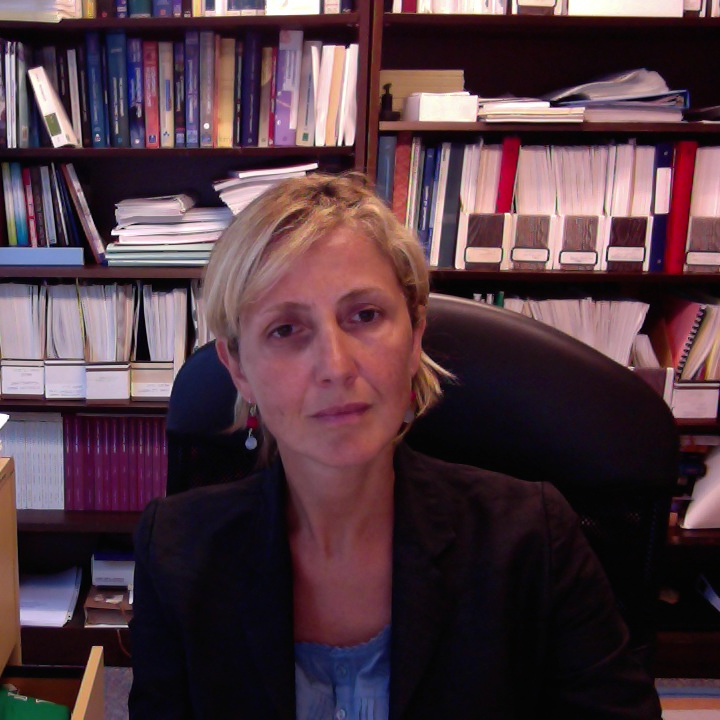
Congratulations to GCER Fellow Anna Maria Mayda for her recent NSF grant. The grant funds a project that quantifies the effects of highly skilled foreign workers on the economic activity of firms, individuals, and the aggregate US economy.
Sep 11, 2015
GU Econ Student receives dissertation grant from Washington Center for Equitable Growth.
 Georgetown Economics PhD student Jake Mortenson was recently awarded a dissertation grant from the Washington Center for Equitable Growth. Jake is currently working for Joint Committee on Taxation. He and his colleagues, Jeff Larrimore of the Federal Reserve Board and David Splinter of the Joint Committee, use federal income tax data to document large intra-generational income mobility. The show that almost half of all workers have their earnings increase or decrease by at least 25 percent every two years.
Georgetown Economics PhD student Jake Mortenson was recently awarded a dissertation grant from the Washington Center for Equitable Growth. Jake is currently working for Joint Committee on Taxation. He and his colleagues, Jeff Larrimore of the Federal Reserve Board and David Splinter of the Joint Committee, use federal income tax data to document large intra-generational income mobility. The show that almost half of all workers have their earnings increase or decrease by at least 25 percent every two years.
Sep 10, 2015
GCER Fellow Bouton receives $1.5 million grant from ERC to Elections study.
 GU economist and GCER Fellow Laurent Bouton received a prestigious grant from the European Research Council for his project: “Political Economy with Many Parties: Strategic Electorate and Strategic Candidates”. The grant of $1.5 million will be used to study problems arising in multi-candidate elections. Bouton’s project will develop new methodological tools to analyze behavior of candidates and voters in multi-candidate elections and then use these tools to improve upon existing political institutions.
GU economist and GCER Fellow Laurent Bouton received a prestigious grant from the European Research Council for his project: “Political Economy with Many Parties: Strategic Electorate and Strategic Candidates”. The grant of $1.5 million will be used to study problems arising in multi-candidate elections. Bouton’s project will develop new methodological tools to analyze behavior of candidates and voters in multi-candidate elections and then use these tools to improve upon existing political institutions.
Sep 4, 2015
GCER Fellow Genicot examines conflict in IDEAS FOR INDIA article.
GCER Fellow and Economics Professor Garance Genicot examines problems of conflict, property rights, and suicides in India in a July column for the on-line magazine IDEAS FOR INDIA. A shorter version of the article appears in the online magazine MINT.
Aug 24, 2015
Schedule of upcoming speakers for Fourth GCER-IZA Young Scholar Program announced.
The IZA and the Georgetown Center of Economic Research (GCER) of Georgetown University’s Economics Department are pleased to announce the speaker schedule for the the fourth IZA@DC Young Scholar Program. The program, a joint effort by GCER and the IZA to bring outstanding PhD students to Washington, DC, is set to take place from September 27 — October 2, 2015 at Georgetown University in Washington DC. Consult the GCER calendar for dates and times of the seminars during the week of Sept 27-Oct 2.
 Monday, September 28: Luigi Pistaferri (Stanford University)
Monday, September 28: Luigi Pistaferri (Stanford University)
Luigi Pistaferri is a Professor of Economics at Stanford University, co-editor at the American Economic Review, and research fellow of the NBER, SEPR and IZA. Professor Pistaferri has a number of prominent research articles in the intersection of Labor and Macroeconomics. His research tackles critical topics on consumption and earnings inequality and on insurance-incentive trade offs of social insurance policies. His recent work focuses on the dynamics of intra-family insurance and time allocation.
 Tuesday, September 29: Peter Arcidiacono (Duke University)
Tuesday, September 29: Peter Arcidiacono (Duke University)
Peter Arcidiacono is a Professor of Economics at Duke University. He is known for research that spans a variety of topics in labor economics, including the effects of race on educational success, and the effects of search frictions in the matching and formation of relationships. Recent work explores the strategies for identifying anticipated returns from occupational choices.
 Wednesday, September 30: Kenneth Wolpin (Rice University)
Wednesday, September 30: Kenneth Wolpin (Rice University)
Ken Wolpin is Distinguished Research Professor and Lay Family Professor of Economics at Rice University. His contributions cover topics in labor economics, economic demography, development economics, health economics, and empirical methodology. Professor Wolpin is widely recognized for research that develops and applies of tools for estimating discrete choice dynamic programming models. His approach, combining economic theory, data, and econometrics is used throughout the economics profession.
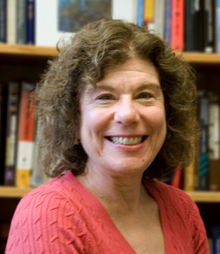 Thursday, October 1: Francine Blau (Cornell University)
Thursday, October 1: Francine Blau (Cornell University)
Francine Blau is the Frances Perkins Professor Industrial and Labor Relations at Cornell University. Professor Blau is also Research Associate of the NBER, a Research Fellow of the Center for Economic Studies/Ifo Institute and the IZA. Professor Blau has published extensively on topics ranging from the Economics of wage inequality and occupational choice to immigration, and gender issues. Her work on the gender pay gap was recently presented to the White House and the Council of Economic Advisors.
 Friday, October 2: Alexandre Mas (Princeton University)
Friday, October 2: Alexandre Mas (Princeton University)
Alexandre Mas is Professor of Economics and Public Affairs at Princeton University. Professor Mas is a labor economist with broad expertise in the economics of unemployment insurance, welfare reform, and labor unions. Many of his contributions focus on the economics of the workplace. His recent work examines the effects of transparency in compensation on wage compression.
Jun 11, 2015
GCER Fellow Bouton examines restaurant rankings in Atlantic article.
New research by GCER economist Laurent Bouton is featured in the June 2015 on-line edition of the Atlantic. The article, entitled “Consumers love rankings, but they may end up doing more harm than good” discusses Bouton’s paper with co-author Georg Kirchsteiger on the effect of rankings of products on the welfare of consumers. Bouton and Kirchsteiger identify several situations in which such rankings may be detrimental for consumers.
Jun 3, 2015
Another successful Washington PECO Conference concludes
The Washington Area Political Economy Conference took place at the Inter-American Development Bank on May 19-20, 2015. The Washington PECO is an annual political economy conference hosted jointly by Washington area institutions, including Georgetown Center for Economic Research, the Department of Economics, the School of Foreign Service and the Department of Government at Georgetown University, and the Inter-American Development Bank. The conference is held each Spring.
May 16, 2015
Jason Albert receives Razin Prize
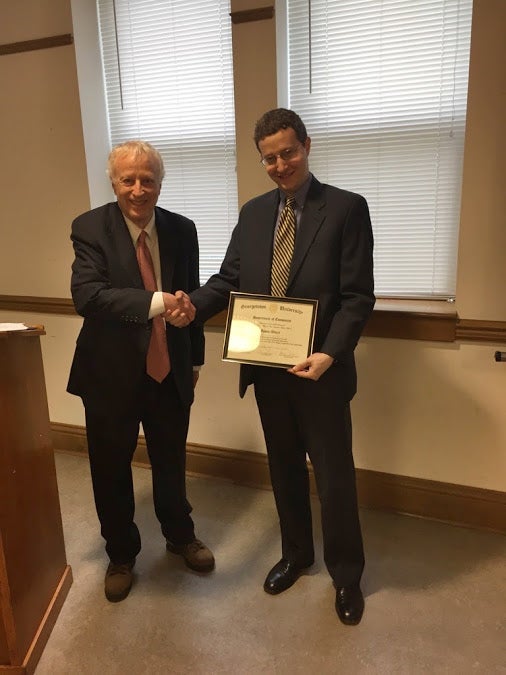 Jason Albert, winner of the eighteenth annual Razin Prize, is shown being congratulated by George Akerlof, who delivered the Razin Policy Lecture on April 27, 2015. Jason received the prize for his dissertation paper titled “Strategic Dynamics of Antibiotic Use and the Evolution of Antibiotic-Resistant Infections”.
Jason Albert, winner of the eighteenth annual Razin Prize, is shown being congratulated by George Akerlof, who delivered the Razin Policy Lecture on April 27, 2015. Jason received the prize for his dissertation paper titled “Strategic Dynamics of Antibiotic Use and the Evolution of Antibiotic-Resistant Infections”.
The Razin Prize was established by the Razin family in 1997 to honor the memory of Ofair Razin (1966 – 1996; PhD, Georgetown University, 1996). The prize is accompanied by the Razin Lecture on economic policy by a distinguished economist.
May 14, 2015
Featured Research Profile: Spring/Summer 2015
Leaning in,… sort of: Georgetown economist Mary Ann Bronson explores reasons why men and women make different post-secondary educational investments.
 Women’s rise in college graduation rates in the last 40 years is spectacular by historical standards. For much of the twentieth century, rates of college enrollment for women were much lower than those for men. Starting in the 1970s, the differences in enrollment rates declined rapidly, to the extent that enrollment differentials were reversed: women now make up around 57% of graduating college students in the U.S. Around the same time, U.S. women began converging with men along another dimension of educational investment: the choice of college major. In contrast to graduation rates, however, gender convergence in choice of major virtually ceased after the early 1980s. In 1985, women were awarded nearly 80% of education degrees and about 85% of degrees in nursing and health support fields, but less than 30% of hard science and engineering fields. The same is still true today.
Women’s rise in college graduation rates in the last 40 years is spectacular by historical standards. For much of the twentieth century, rates of college enrollment for women were much lower than those for men. Starting in the 1970s, the differences in enrollment rates declined rapidly, to the extent that enrollment differentials were reversed: women now make up around 57% of graduating college students in the U.S. Around the same time, U.S. women began converging with men along another dimension of educational investment: the choice of college major. In contrast to graduation rates, however, gender convergence in choice of major virtually ceased after the early 1980s. In 1985, women were awarded nearly 80% of education degrees and about 85% of degrees in nursing and health support fields, but less than 30% of hard science and engineering fields. The same is still true today.
The question of why women graduate from college at much higher rates than men, but with very different (and far lower-paying) majors has important implications for both individual and aggregate outcomesin the labor market. In her study, “Degrees are Forever: Marriage, Educational Investment, and Lifecycle Labor Decisions of Men and Women,” GCER Fellow Mary Ann Bronson shows that two facts help explain these observed gender differences in educational choices. First, a college degree provides insurance against very low income for women, especially after divorce or household separation. Low-educated women not only draw from a substantially lower wage distribution than men, but are also more likely to have custody and financial responsibility for children. A college degree, regardless of major, allows access to higher paid jobs, providing insurance for women outside a two-earner household. Bronson estimates that the insurance value of a college degree in case of household dissolution is equivalent to about 31% of the overall return to college for women.
Secondly, Bronson shows that college majors differ substantially in the degree of ‘work-family flexibility’ they offer. Wage penalties for working part time or taking time out of the labor force are up to four times higher in science/business fields, as compared to other fields such as education, nursing, or the humanities. Because college women reduce their labor supply substantially during their prime child-bearing years – at age 35, only around 60% of college-educated women work full-time, compared to around 90% of college-educated men. Such flexibility appears to be particularly important for women. The data indicates that women tend to choose more flexible majors than men and are more likely to utilize the flexibility associated with these majors.
Based on these patterns, Bronson develops and estimates a structural model that simulates men’s and women’s lifetime choices concerning education, labor supply, marriage, and divorce. Bronson then uses the model to simulate the effects of different work-family flexibility policies on these choices. The results show that the most effective policies for increasing women’s participation in business and STEM fields are non-discriminatory part-time work policies, in which employees with children below a certain age are entitled to work part-time. Policies that provide this kind of benefit to employees with children have been passed in a number of countries, including Belgium, France, and the Netherlands. Bronson finds that such policies could increase the share of women choosing a science/business major from 34% to 45%.
On the other hand, Bronson finds that policies such as subsidized child care have relatively little effect, while extended maternity leaves (of more than one year) can in fact reduce the share of women choosing a science or business major, by significantly reducing the amount of experience women accumulate over the lifecycle. Because returns to experience are much higher in science/business fields, policies that allow women to remain in the workforce at temporarily reduced hours are much more effective at shifting women towards science and business fields than extended leave policies.
May 8, 2015
Caitlin Brown and Andrew Whitten receive Vernon Jordan Jr Fellowship Award
For the fourth straight year, The Economic Club of Washington presents its prestigious Vernon E. Jordan Jr Fellowship Award to a GU Economics PhD student. This year’s recipients are Caitlin Brown and Andrew Whitten. Caitlin and Andrew are the fifth and sixth GU students to receive the award, joining past recipients Jacob Mortenson, Alison Weingarten, Claire Brunel, and Mauricio Villamizar. As this year’s winners, Caitlin and Andrew were presented with their awards by The Economic Club of Washington in the Spring of 2015.
Mar 29, 2015
Nobel Recipient George Akerlof to deliver Razin Policy Lecture
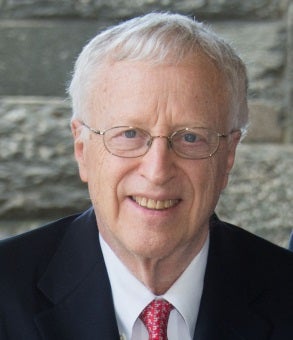 George Akerlof, University Professor and recipient of the Nobel Prize in Economic Sciences in 2001 will deliver the 2015 Razin Policy Lecture on April 27. The Lecture, entitled “Phishing for Phools,” will take place on Monday, April 27, 2015 from 3:30 to 5:00 in the McShain Large Lounge on the GU campus. A reception will follow.
George Akerlof, University Professor and recipient of the Nobel Prize in Economic Sciences in 2001 will deliver the 2015 Razin Policy Lecture on April 27. The Lecture, entitled “Phishing for Phools,” will take place on Monday, April 27, 2015 from 3:30 to 5:00 in the McShain Large Lounge on the GU campus. A reception will follow.
Professor Akerlof is a renowned economist whose innovative work on markets with asymmetric information explains why such markets often break down. This work, culminating in his famous paper, “The Market for ‘Lemons’” earned Professor Akerlof the 2001 Nobel Prize in Economics, a prize he shared with Michael Spence.
The Razin Lecture is accompanied by the awarding of the Razin Prize for best research paper by an advanced graduate student. This year’s recipient, Jason Albert, will receive the award for his dissertation paper titled “Strategic Dynamics of Antibiotic Use and the Evolution of Antibiotic-Resistant Infections“. The event was established by the Razin family in 1997 to honor the memory of Ofair Razin (1966 – 1996; PhD, Georgetown University, 1996). More on the background and history of the Razin Prize and Policy Lecture can be found here.
Mar 29, 2015
GCER Fellow’s research on voting abstention appears in VOX article
New research by GCER Fellow Laurent Bouton on voting abstention was recently published in the March 2015 issue of VOX. The article features new research by Bouton and his co-authors Aniol Llorente-Saguer and Frédéric Malherbe on the role of “constructive abstention rules,” i.e., rules that treat abstentions as “no” votes if they are sufficient in number.
As distinct from the silent consent of traditional abstention rules, Bouton et. al. show that constructive abstention effectively combines the information aggregation aspects of majority rule while still allowing for veto power. The full VOX article can be found here.
Feb 6, 2015
GCER Fellow Levinson featured on Freakonomics Radio
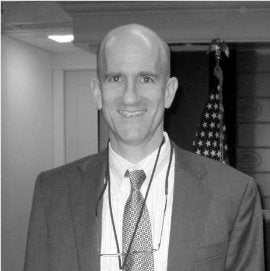 Arik Levinson, GU Economics Professor and GCER Fellow was recently interviewed on Freakonomics Radio, a forum for economic ideas started by best-selling authors Stephen Dubner and Steven Levitt. The podcast of that interview can be found here. In the interview Levinson discusses his recent paper, “How Much Energy Do Building Energy Codes Really Save? Evidence From California.”
Arik Levinson, GU Economics Professor and GCER Fellow was recently interviewed on Freakonomics Radio, a forum for economic ideas started by best-selling authors Stephen Dubner and Steven Levitt. The podcast of that interview can be found here. In the interview Levinson discusses his recent paper, “How Much Energy Do Building Energy Codes Really Save? Evidence From California.”
Jan 27, 2015
GCER to host IZA Conference on Entrepreneurship
GCER is proud to be the local host for the IZA conference on entrepreneurship. The conference will take place on September 16-18, 2015 in the Georgetown Conference Center (Leavey Center) in the Salon wing.
